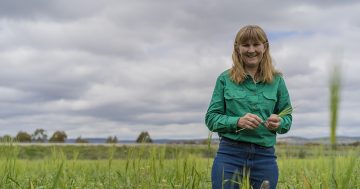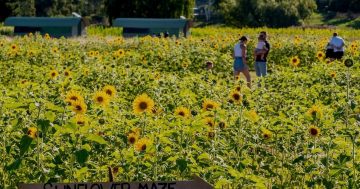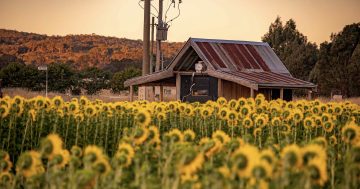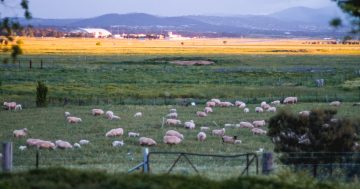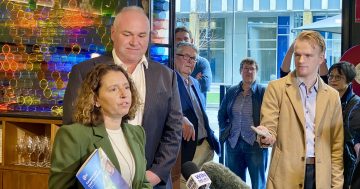
Anne McGrath on the family property at the Majura Valley. Photos: Elsie Percival.
On the oldest continuously farmed property in the ACT, the future of farming is evolving in the hands of people who are ensuring locally sourced produce also has a future.
If you’ve gone out of your way to source locally farmed produce such as eggs, wine, cheese or even sheep milk, there is a very good chance it travelled less than 20 minutes to your table from the Majura Valley.
At the home of Majura Valley Free Range Eggs, Majura House, which has been farmed for more than 165 years, Anne McGrath and her son Fred McGrath Weber are continuing a legacy left by Nick Weber, who died without seeing the lease on their property being renewed.
Fred was recently named the 2020 young environmentalist of the year by the ACT Conservation Council and is taking his father’s vision to maintain the valley’s historical legacy with modern farming methods.
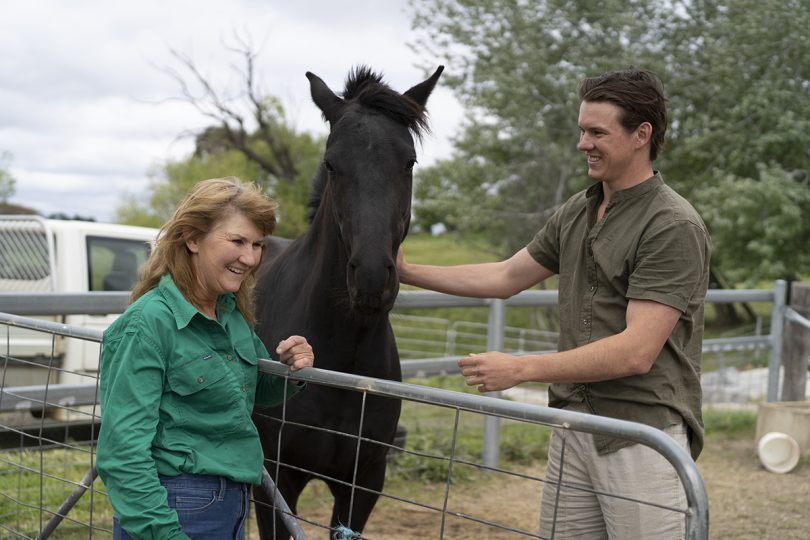
“This is really about providing an opportunity for the next generation coming through,” says Fred McGrath Weber with his mother Anne.
He has helped harness the knowledge of other farms in the area such as Mount Majura Vineyard and The Truffle Farm along with other primary producers who are mixing their farming businesses with tourism.
Majura Valley Free Range Eggs also produces corn and lamb, and Fred wants to develop on-farm tourist attractions such as a sheep milk diary, a farm produce shop, cafe and a micro-brewery while maintaining the area’s natural heritage.
Fred says farmers in the highly fertile Majura Valley are forging ahead with farming methods of the 21st century to grow an appetite for local produce.
“Our free-range eggs are just one piece of the puzzle,” he says. “Our mobile chook shed increases soil fertility as a result of the droppings falling through. We then plant a crop of corn or lucern. Then fat lambs will graze on the paddock.
“While these are hardly new farming methods, they are far more sustainable and allow us to link different products together.”
Following bushfires, COVID-19 and the loss of his father, Fred and his mother Anne have persevered to gear their farming towards minimal waste and sustainable food production.
Fred has also developed the Majura Valley Natural Compost and Worm Castings, where farming byproducts, including compost, are sold in biodegradable hessian bags and recycled buckets.
He recently ran a community workshop with the Molonglo Catchment Group to collect rubbish along the Molonglo River and is developing a sculpture with the rubbish collected, to be displayed at Stromlo Cottage later this month.
Fred is also developing reusable egg cartons that have several universities interested, and the project will hopefully begin next year.
“People want to know where their food is coming from, so we provide more of an on-farm experience, such as the sheep milk dairy, and opening the farm to the public where they can watch the sheep being milked and then sip on a coffee made with the sheep milk, and with some eggs from the farm.
“We want to tie that in with other farms in the valley such as the truffle farm and the vineyard so people can have a true paddock-to-plate experience.”
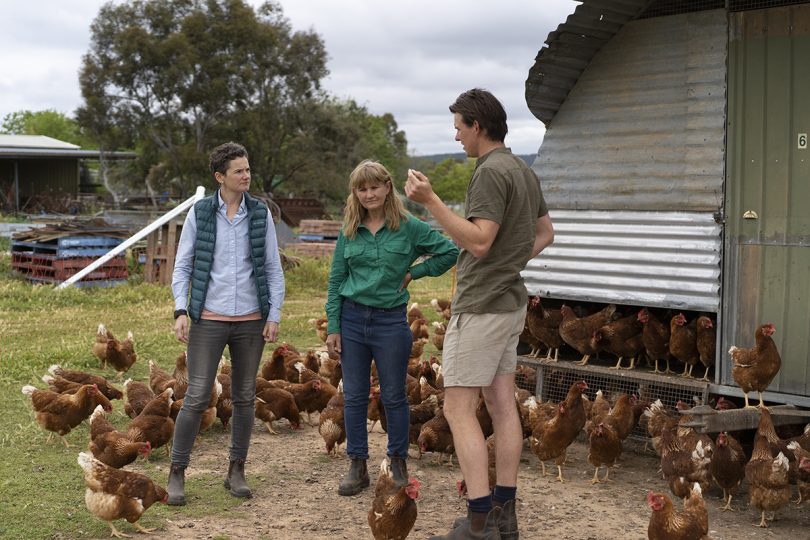
ACT Commissioner for Sustainability and the Environment Sophie Lewis discuss farming methods with Anne McGrath, Fred McGrath Weber.
The future of farming in the Majura Valley has also been put on the agenda following this year’s ACT election. Last month, Minister for the Environment Rebecca Vassarotti brought together local farmers, scientists and others with expertise to share their experiences and identify the best approaches as part of the Resilient Farming in a Changing Climate forum.
“The extended dry periods and recent bushfires, which will only become more common as the climate changes, pose a significant threat to local land, livestock and operations,” Ms Vassarotti said.
“Our farmers have been sharing their learnings about how they are adapting their practices, including diversifying produce, planning for shade and shelter on the land, improving soil carbon, and looking at how rural communities can work together to support overall wellbeing.”
For Fred and Anne, the long farming history of their land is only as good as the soil under their feet.
“This is really about providing an opportunity for the next generation coming through,” says Fred, whose sister is studying a double degree in agriculture and business. “It’s all about ensuring that what you’re doing on the farm is improving the land rather than taking away and that’s something we need to keep striving to do.”












